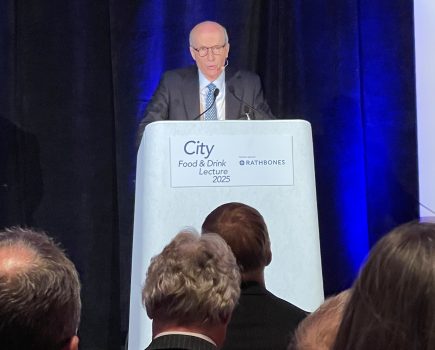My great-grandfather predicted that he was “going to make beans cheap” and he succeeded. In those days, the crop had a reputation for being highly volatile in price, depending on the season. If there were a shortage of beans one year, the price would skyrocket, encouraging lots of farmers to grow beans the following season. This, then, created a glut that collapsed the price, meaning that few farmers bothered to plant the crop the following year and so the price volatility would continue.
Thus it was with great trepidation that I planted beans in the spring of 2022. Would I also make beans cheap? The answer, at first, appeared to be “no”. Although I harvested a bumper crop in September 2022, the price remained high.
Indeed, by Christmas, my grain merchant was casually throwing figures of £300/tonne around for my beans if only buyers could find transport to get my beans to where they would be consumed by the vast numbers of pigs and chicken nowadays farmed in the Eastern Counties.
Of course, what caused the price of beans, and most other combinable crops, to rise consistently throughout 2022 was Vladimir Putin’s brutal invasion of Ukraine. His closure of that country’s Black Sea ports denied the world access to Ukraine’s huge annual exports of grain, oilseeds and pulses.
What I did not anticipate, however, was that the EU would (in a laudable spirit of generosity) open its doors to Ukraine’s combinable crops surpluses and thus crash arable commodity prices across the continent, including in the UK.
As soon as I realised what was happening, I phoned my grain merchant in a panic and tried to sell my beans, only to be told that the price had collapsed to £215/tonne. Furious with myself for not having been more pro-active in selling them earlier, I nonetheless agreed to sell them before prices fell any further.
Perhaps this disaster was always going to happen, given my great-grandfather’s experience with the crop. The causes of the collapse in bean prices in 2023 have been very different to the causes of price volatility in the crop in 1890 but perhaps I am genetically programmed to sell beans at a miserably low price.
My fears on this front have only been heightened in recent days by the news that Poland and Hungary have ignored the EU and unilaterally banned Ukrainian food imports, such has been the catastrophic impact on their farmers. I guess it’s now likely that their actions will reverse the recent drop in arable commodity prices, including beans.
But my beans are now sold, so all I can do now is take comfort in feeling a deep affinity with my beloved great-grandfather. Nearly 150 years apart we both made beans cheap.
For more like this, sign up for the FREE South East Farmer e-newsletter here and receive all the latest farming news, reviews and insight straight to your inbox.







